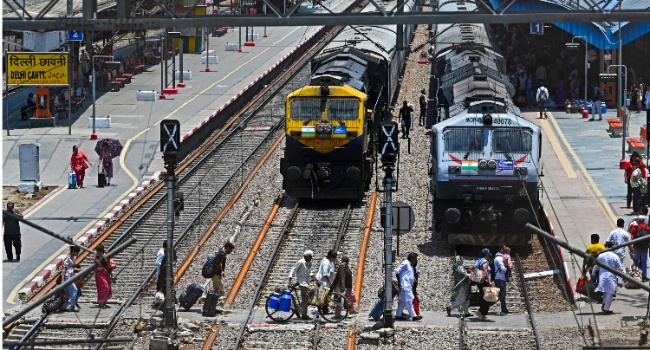One of the train services involved in a triple collision in India’s deadliest railway disaster in decades was set to resume Wednesday, as officials revised the death toll up to 288.
“The Coromandal Express is back on track,” railway spokesman Aditya Kumar Chaudhary told reporters, with the train set to depart Shalimar station near Kolkata on Wednesday afternoon on a 25-hour journey south to Chennai.
The service was one of three trains involved in the crash near Balasore in the eastern state of Odisha on Friday.
Odisha’s chief secretary Pradeep Jena said late on Tuesday the official death toll had risen to 288, up from an earlier official total of 275.
At least 1,175 people were injured, many of them in critical condition and still being treated in hospital.
Jena said the revised toll came after deaths were tallied from both hospitals and mortuaries and noted that 83 bodies remain unidentified.
Medical centres were overwhelmed by the number of casualties and there are fears the death toll could rise further.
The Coromandal Express was diverted onto a loop line when it then slammed into a stationary goods train.
The collision flipped the carriages of the Coromandal Express onto another track.
The derailed compartments then struck the rear carriages of another train, the Howrah Superfast Express from India’s tech hub Bengaluru, which was passing in the opposite direction.
While trains began operating late Sunday past the crash site, Wednesday’s journey will be the first service of the Coromandal Express to resume the route.
Ashwini Vaishnaw, India’s railway minister, has said the crash happened due to the “change that occurred during electronic interlocking”, a technical term for a complex signal system designed to stop trains colliding.
A six-member team from India’s Central Bureau of Investigation examined the crash site on Tuesday.
Prime Minister Narendra Modi has said “no one responsible” would be spared.
India has one of the world’s largest rail networks and has seen several disasters over the years, the worst of them in 1981 when a train derailed while crossing a bridge in Bihar and plunged into the river below, killing some 800 people.
The Balasore crash is India’s third worst and the deadliest since 1995, when more than 300 people died when trains collided in Firozabad near Agra.


